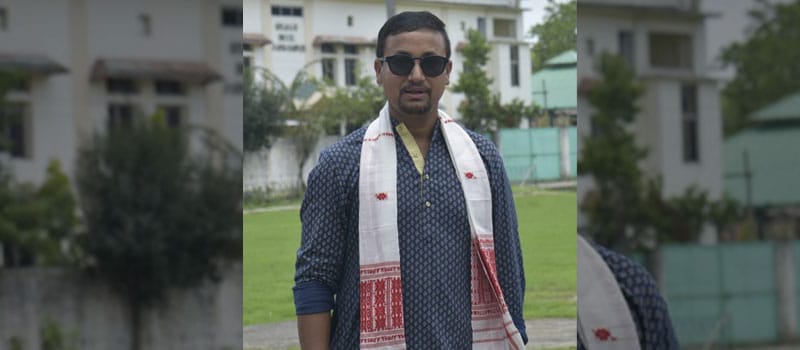Parikshit Dutta, a 42-year-old social worker, is helping the returning migrant youths to gain the grounds under their feet in Assam’s Golaghat district. These youths have rendered unemployed after they had to leave their jobs in the big cities amid the countrywide lockdown owing to the pandemic situation and have returned to their hometowns.
Parikshit is generating sustainable income prospects for these repatriating jobless youngsters by establishing Fishery farms in the villages of the area. As the working president of the Rhythm Agricultural Group, Parikshit envisions to create long-term self-reliance of village economies.

The need for such self-contained village economies has heightened all the more amid the corona-crisis of which the migrant laborers across the country have been the worst hit. Amid the continued rise in Covid-19 cases in the metro cities, no sooner these migrants may be able to return to work.
Amid such a situation not only have the income opportunities for many are uncertain, but also the rural economies have suffered a massive upheaval. To avert further deterioration of the situation followed by the Covid-driven migration during the last couple of months in Assam, Mr. Dutta has given training to about 60 young men in pisciculture.
The training helps them in creating fisheries using advanced Biofloc technology. The technology allows fast growth of a vast number of fishes in a small fishpond. So far, the group of trained fish-cultivators has been provided with 50,000 small fishes and five fisheries, to begin with.
“Something had to be done for the youngsters who had come back. We thought of helping by starting fisheries. We have given small fish and fishing nets to them and helped them start a co-operative. For these youth, who once had to migrate in search of a job, this is a new lease of life back home,” Mr. Dutta told NDTV, after inaugurating one of the fisheries by lighting a lamp and offering prayers.
In fact, after the horrors of sustaining for days without food, shelter, and the means of transport to return for many of these migrant workers, the unwillingness for many of them to go back to these big cities seems natural. “I will not go back (to the city) and try to work in the village itself. I am from a family of farmers so I will have to see what I can do,” a young returnee said.
“We, the youth, have had a mindset that nothing can be done here in the village and so we go out. But now, these fisheries have inspired us. It has allowed us to think that we can do a lot of things for ourselves in the village itself,” expressed another, while attending the inauguration ceremony of the fisheries.
On May 18, the Chief Minister of Assam emphasized generating feasible income opportunities for the returning youths of the country and reviewed the progress made on the implementation of various schemes at the village level by the Panchayat and Rural Development department of the state.
Additionally, he has also ordered the Department of Fisheries to create employment opportunities under a central government scheme in order to usher in “blue revolution” by setting up ‘fish landing ports’ on the banks of Brahmaputra and Barak rivers and forming ‘fish farmer-producer groups’ for an increase in market relations.
As of July 13, there are 16,806 confirmed Covid-19 cases in the state of Assam out of which 41 deaths have been reported. Owing to the rising cases of Covid infections, on July 11, the state government extended the lockdown in Guwahati till July 19.
Amid the difficult times like this, efforts taken by people like Mr. Dutta not only deserve accolades but also should garner administrative support both materially and morally. Though there have been numerous charitable contributions made by people from various walks of life for sending these migrant workers home safe, what happens after their return remains questionable.
Self-reliance on rural economies has been one of the fundamental ideals of the Gandhian philosophy which includes both reverse migration and localization. A partial implementation of the ethos in the contemporary socio-economic scenario, though maybe substantially challenging but can bear fruits in terms of better conditions of rural lives.

